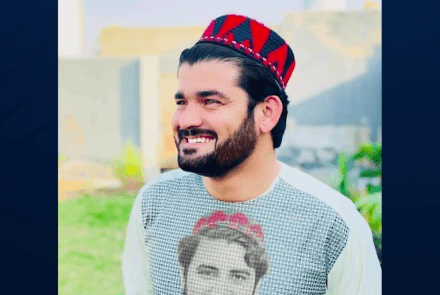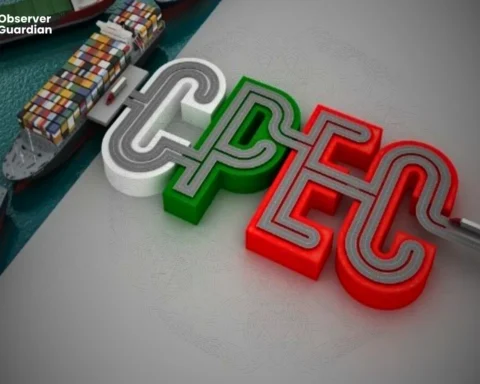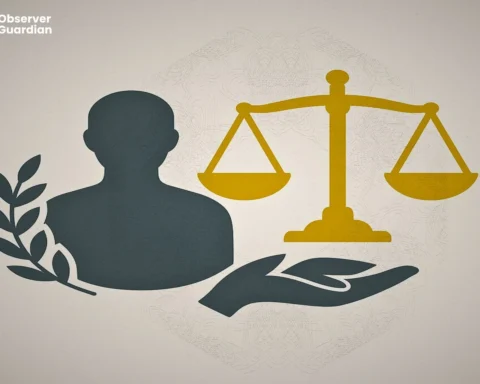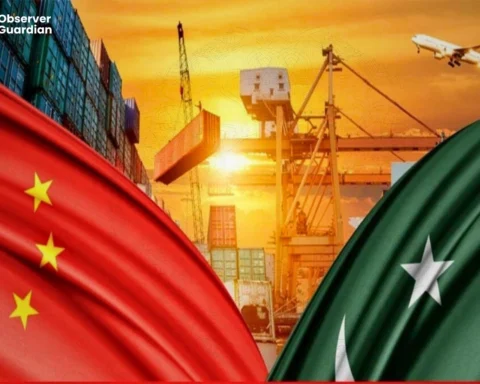As the one-year mark of Gilaman Wazir’s death approaches, attempts are once again being made to turn him into a symbol of resistance and martyrdom. PTM activists are lining up to portray him as a victim of the state, a soft-spoken poet allegedly silenced by Pakistan’s institutions. But when emotion is stripped away and facts are laid bare, the story of Gilaman is not one of sacrifice for a noble cause, but a cautionary tale of how impressionable minds are pulled into dangerous ideological games by anti-state elements working under the guise of rights activism.
Gilaman Wazir rose to prominence not because of his poetic excellence, but because his words were used to validate PTM’s confrontational agenda. His verses were repeatedly amplified during rallies that vilified Pakistan’s security forces and accused the state of oppression, without context, without evidence, and often without regard for national unity. Gilaman, knowingly or unknowingly, allowed his poetry to become a mouthpiece for a movement whose loyalties are increasingly suspect. A closer look at PTM’s connections reveals troubling patterns.
PTM has repeatedly received favorable media coverage from outlets hostile to Pakistan. Its activists maintain links with foreign-funded NGOs and openly interact with Indian platforms and voices known for their anti-Pakistan stance. PTM leaders like Manzoor Pashteen have never condemned TTP or other violent actors by name. In fact, PTM’s silence on TTP’s terrorism, and its refusal to label them as aggressors, is a glaring indicator of where their sympathies lie. The group instead channels all its criticism toward Pakistan’s security institutions, the same institutions that have fought and died to free the tribal belt from the grip of militants.
Gilaman’s early fame coincided with the peak of PTM’s street mobilization. He was praised not for promoting peace, but for feeding into a narrative that blamed Pakistan for the destruction caused by groups like TTP and their foreign handlers. The poetry, masked as protest, echoed slogans designed to create rifts between the people and their state. It was emotionally powerful, but politically dangerous. At no point did Gilaman publicly call out the TTP for their massacres in Waziristan or the targeted killings of Pashtun elders, teachers, and policemen. His silence on those realities spoke louder than his verses.
In his final months, there were signs that Gilaman was trying to distance himself from PTM. Perhaps he began to realize that the very movement he once supported had no space for independent thinking. Or perhaps he understood, too late, that PTM was not a rights movement, but a political project serving foreign interests. His growing irrelevance in the movement, and disputes with key figures like Azad Dawar, made him vulnerable. But the sudden posthumous claim by PTM that the state silenced him is not just false, it is manipulative.
If Gilaman Wazir had truly been on the radar of national security institutions, he would not have been allowed to move around so freely. He attended events, posted openly on social media, and traveled without any restriction. His poetry, while emotionally charged, lacked influence outside the narrow circles of PTM sympathizers. Yet PTM portrays his death as a calculated act by the state, ignoring the fact that no harm ever came to him while he openly spoke against national institutions. Meanwhile, their leader Manzoor Pashteen constantly accuses the Army of targeting activists, yet enjoys complete freedom of movement, even within Islamabad, and often under state-provided security. The contradiction is obvious. PTM thrives on a narrative of persecution. When it cannot find genuine victims of state violence, it creates stories around those who were never targeted at all. Gilaman Wazir’s death, tragic as it was, became a political opportunity, not because the state silenced him, but because PTM needed another name to keep its anti-state rhetoric alive.
Gilaman’s case has been conveniently twisted into such a narrative. The truth remains buried in internal rivalries, personal insecurity, and PTM’s chronic need to find scapegoats. The movement that now mourns him had no problem sidelining him when he began losing usefulness. He was once their voice, then became their burden. What followed was a calculated campaign to turn him into a posthumous symbol of state oppression, a claim that collapses under basic scrutiny.
It is essential to recognize the broader pattern here. PTM is not just a protest movement. It has long crossed into the territory of anti-state politics. Its reluctance to criticize the TTP, its alignment with foreign propaganda, and its attempt to fracture the unity of Pakistan’s diverse population all point to one conclusion. It has become, in essence, a civilian cover for narratives that serve FAK (TTP) and their foreign sponsors.
Gilaman Wazir’s story is not of a silenced hero, but of a young man who allowed himself to be drawn into an ideological war against his own state. Whether knowingly or as a product of his environment, he lent his voice to those who sought to weaken Pakistan from within. In the end, he was not silenced by the state. He was discarded by the very people who used him. His memory, now weaponized by PTM, serves not as a tribute to poetry or peace, but as a tool in their ongoing campaign of disinformation.
On his death anniversary, let us not fall for theatrics. Let us remember the facts. Gilaman was not a victim of the state, but of a movement that serves foreign agendas, glorifies those who attack Pakistan, and punishes anyone who dares to question its leadership. That is the truth PTM will never write poetry about.







